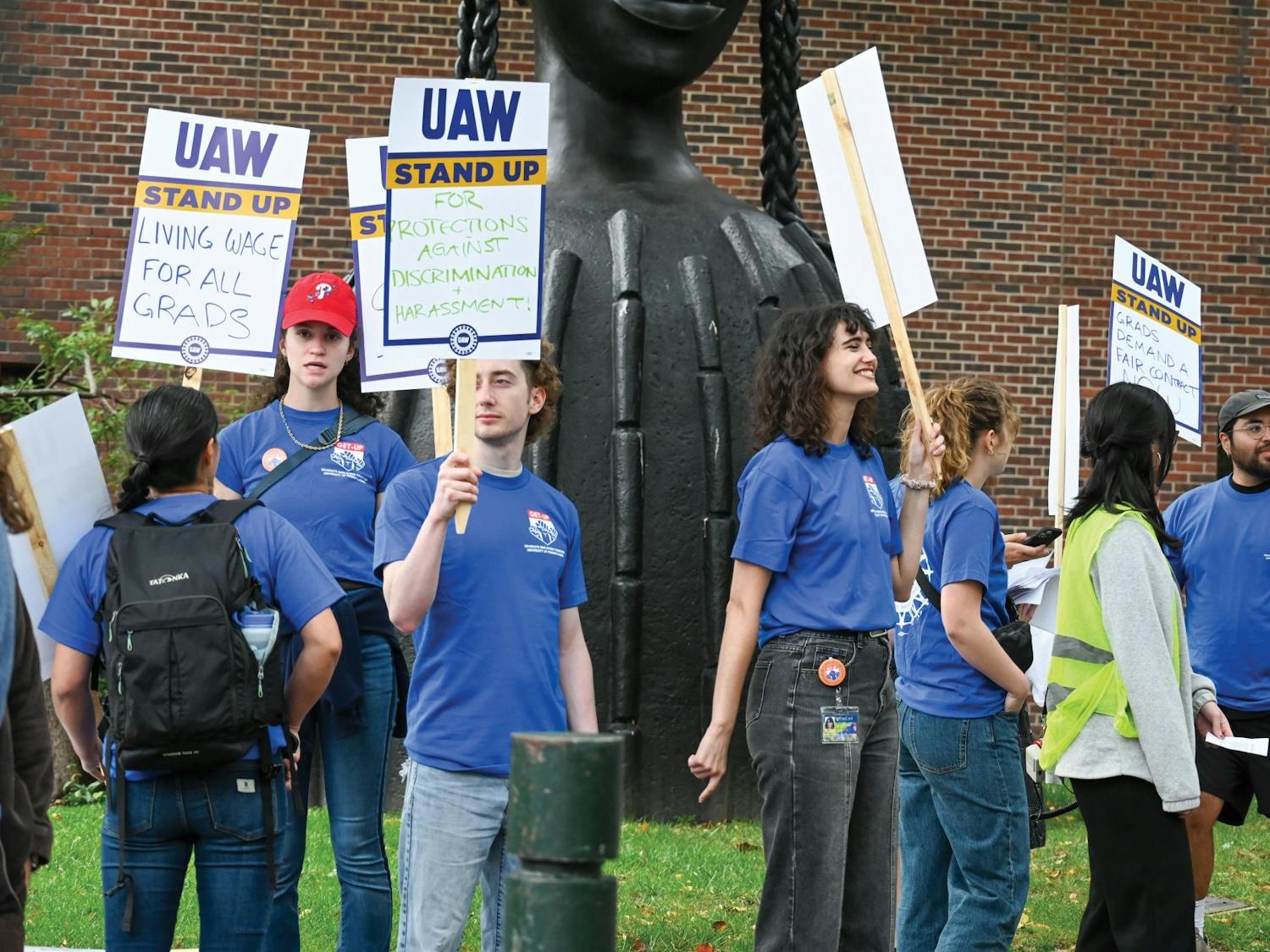Treating illegal immigrants involves more than just writing a prescription.
Penn for Immigrant Rights and the Latino Pre-Medical Association co-hosted “Healthcare for the Undocumented,” a panel discussion on Thursday in Huntsman Hall. Immigration Action Week is a series of events around campus this week meant to bring attention to the policy and thought surrounding immigration.
Puentes de Salud, a community health clinic serving the Latino immigrant population of South Philadelphia, was the focus of the discussion.
Two former Penn students and current volunteers for Puentes de Salud participated on the panel. Carla Paredes, a 2010 Nursing graduate and an Intensive Care Unit nurse at the Children’s Hospital of Philadelphia, and Elsa Treffeisen, a 2012 College and Engineering graduate and a student at Jefferson Medical School, shared their experiences of providing health care to undocumented immigrants.
All volunteer
The volunteer-run clinic generally serves 40 patients, two nights a week. Although it was founded in 2006, it did not provide any clinical services for three years in order to establish its place within the community. “Puentes de Salud did not start with one doctor alone. It started in the community,” Paredes said.
“It’s not just about giving [patients] a pill and sending them away. They need to be heard. They need to be counseled,” Paredes said.
Education and outreach
Puentes de Salud provides clinical services, educational programs, supports community outreach and participates in research. Other than community clinics like Puentes, the emergency room is the only place undocumented immigrants can be seen for medical care.
“We educate the community to empower their own lives and take care of themselves,” Paredes said. “We treat what needs to be treated in addition to providing education for conditions that our patients are at high risk for such as diabetes and hyperlipidemia.”
Paredes also said “language and literacy is one of the main challenges that Puentes faces.” All volunteers need to be fluent in Spanish and receive training on the unique cultural needs of the patient population. “If a patient believes in traditional remedies like slicing a tomato and putting it on their back to heal wounds, that is something we need to respect,” she added.
Politics by proxy
The role of providers in addressing health care disparities is unclear. Paredes believes that “advocacy for clinicians means showing up and providing services.” She noted that the issue is politically divisive. “When you are funding a clinic like this, you are making a political stance,” she said.
Treffeisen also emphasized that Puentes is about getting the word out about issues associated with immigrant health. “Increasing education in the community leads to healthier lifestyles,” she said.
Treating body and mind
Puentes de Salud is entirely a team effort. Instead of the traditional hierarchal structure in providing health care, there is a level field between all providers and volunteers. Paredes and Treffeisen also emphasized the need for providing culturally competent care and listening to the patient. Paredes explained that a psychosocial counselor is present at the clinic every night to “address what the majority of the patient population goes through with issues including anxiety and depression that can be associated with being undocumented immigrants.”








